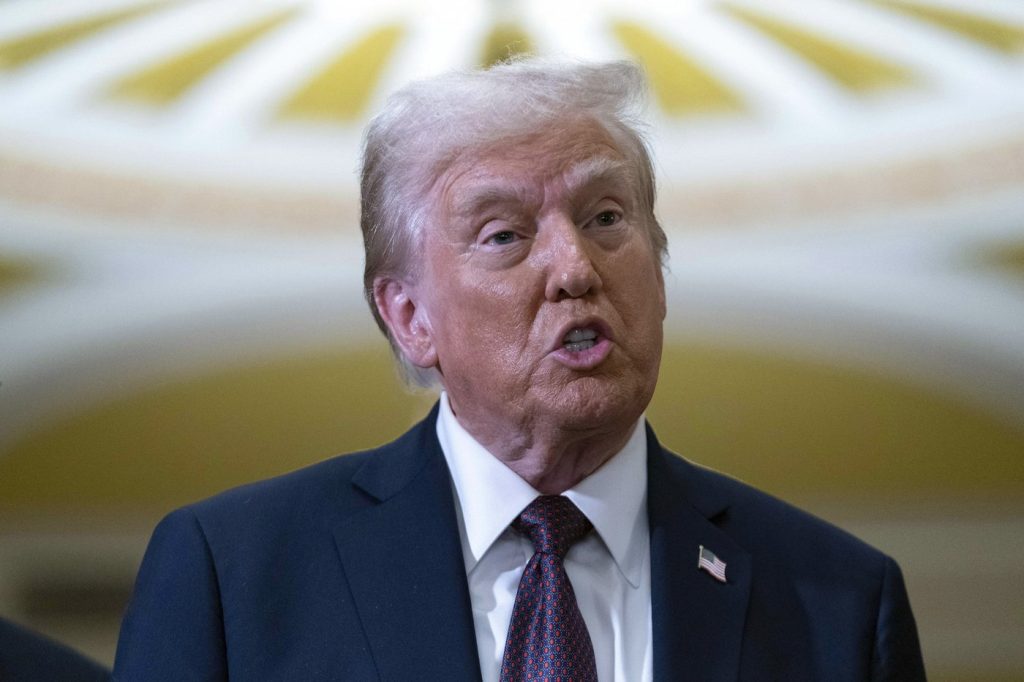PARIS (AP) - President-elect Donald Trump has generated controversy with his assertions about expanding U.S. territorial claims, suggesting that American influence should extend into Canada, Greenland, and even the Panama Canal. His rhetoric implies that borders could potentially be redrawn through force, a notion that has ignited concern among European leaders as they navigate Russia's aggressive actions in Ukraine.
Many European officials, accustomed to Trump's unpredictable stance, have remained cautious in their responses, often downplaying his provocative statements instead of vociferously defending Denmark's sovereignty. Despite this measured approach, analysts warn that even mere words can strain U.S.-European relations as Trump prepares for his second term.
In response to Trump's remarks, some European leaders have expressed their belief that he has no intention of using military force to annex territories such as Greenland. For instance, Italian Premier Giorgia Meloni stated, "I think we can exclude that the United States in the coming years will try to use force to annex territory that interests it." Similarly, German Chancellor Olaf Scholz emphasized that "borders must not be moved by force," albeit without directly naming Trump in his comments.
Amidst these tensions, Ukrainian President Volodymyr Zelenskyy sought reassurances from Trump's incoming administration regarding ongoing support for Ukraine, reinforcing the principle that powerful nations should not encroach upon their neighbors' territories. Following Russia's military incursion into Ukraine in 2022, this principle has become vital for preserving international order.
Despite the lack of foresight regarding a U.S. invasion of Greenland, British and French foreign ministers have echoed concerns about whether the world is reverting to a "law of the strongest." French Foreign Minister Jean-Noël Barrot reflected on the implications of Trump's rhetoric, suggesting it serves as a wake-up call for the international community.
Greenland's Prime Minister Múte B. Egede noted that while his constituents do not wish to become American, he remains open to enhancing cooperation with the U.S. Similarly, Danish Prime Minister Mette Frederiksen expressed the importance of unity with the U.S., calling it "our closest ally." These leaders emphasize the necessity of dialogue over confrontation in handling such sensitive geopolitical issues.
Despite the general consensus that Trump is unlikely to utilize military action against NATO ally Denmark, European security analysts have expressed deep concern about the potential ramifications of his statements. The discussions around Trump's suggestions could signify turbulence for trans-Atlantic relations, particularly regarding international norms and the NATO alliance.
Some analysts interpret Trump's territorial ambitions—particularly regarding Canada, the Panama Canal, and Greenland—as part of a broader strategy to secure resources and strategic waterways against adversaries, notably China, which currently dominates critical mineral supplies essential for advanced technologies. According to Paris-based analyst Alix Frangeul-Alves, such comments align with Trump's "Make America Great Again" narrative.
However, this approach carries significant risks. Alexander Khara, a security analyst, likened Trump's justification for seeking Greenland to Russian President Vladimir Putin's rationale for the 2014 annexation of Crimea. He cautioned that advocating for flexible borders sets a dangerous precedent and foreshadows a departure from the established norms that have governed international relations for decades.
In summary, while European officials cautiously navigate Trump's provocative statements, the underlying concern remains that even rhetoric can erode the foundations of U.S.-European relations and international security, especially in an era marked by increasing geopolitical tensions and challenges.










